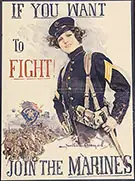Assassination of Franz Ferdinand
The backstory of Franz Ferdinand
Born in 1863, Archduke Franz Ferdinand of Austria was the Prince of Hungary and Bohemia.
He was the oldest son of Archduke Karl Ludwig of Austria, with two younger siblings by the name of Franz Joseph and Maximillian.

In 1875 Duke Francis V of Modena died and named Ferdinand as his heir when he was only 11 years old. The stipulation was a small one and required the young prince to add the name Este to his own.
Upon acceptance, it made the 11-year-old Ferdinand one of the wealthiest men in the world, and all of Austria.
A series of events led to Ferdinand being groomed for the throne, including his father Karl Ludwig dying of typhoid fever in 1896.
Despite the royalty that followed his great name, he was more interested in the simple things in life. Ferdinand became just as famous for his adventures traveling as he did for his royalty and wealth.
Franz Ferdinand Facts for Kids
- Franz Ferdinand was a prince from Austria-Hungary.
- He was born in 1863 in Graz, Austria.
- He was the heir to the throne of Austria-Hungary.
- He married Countess Sophie Chotek in 1900.
- His assassination started World War I.
- He was assassinated in Sarajevo in 1914.
- He was shot by a young Serbian nationalist.
- He was interested in hunting and exploring.
- He had three children with Countess Sophie.
- He was against war with Serbia before his death.
Forbidden Love: Archduke Franz Ferdinand and Countess Sophie’s Marriage
The first bit of controversy in his life was in 1894 when he met his first love Countess Sophie Chotek in Prague.
This resulted in a long and secretive relationship between the two, as she was not eligible to marry anyone in the Imperial House of Habsburg.
It was forbidden unless the lady was a member of a reigning or formerly reigning dynasty in Europe.
Ferdinand was in love, and with the blessing of Emperor Franz Joseph, married Sophie. The penalty was high for the marriage, as their descendants would have no right to the throne.
The marriage was also considered morganatic, meaning all of her husband’s privileges, titles, rank, and even social status were not passed on to her.
Even after having children, they were considered of unequal social rank.
Penalties of a Forbidden Marriage
Of the many penalties associated with this type of marriage, Sophia could not appear in public with her husband nor ride with him in the royal carriage.
Even after attaining the senior title of Duchess of Hohenberg, she was still considered below other archduchesses.
For reference, at their wedding on July 1st, 1900, the Ferdinand brothers and Franz Joseph did not attend.
The same goes for archdukes and any high-ranking title holder, who also declined to attend.
Imperial members that decided on their own to attend the wedding were Ferdinand’s stepmother Princess Maria Theresa of Braganza and her daughters.
Why Was Franz Ferdinand Assassinated?

Franz Ferdinand’s assassination was a result of political tensions within Austria-Hungary’s empire.
As a powerful ruler over numerous countries, there were those who sought independence and resented Austria-Hungary’s control.
As the heir to the throne, Franz Ferdinand was seen as a potential threat by those unhappy with the current leadership.
They feared that he would only intensify their strict rule and suppress their independence even further. This led to a plot by a group of individuals to assassinate him when he visited one of the countries seeking independence.
The assassination sparked a major conflict between Austria-Hungary and the country where the killer came from, eventually leading to a larger war involving several nations.
The underlying tensions and desire for independence ultimately led to this tragic event, forever changing the course of history.
Who Was Affected?
The ending result of the assassination led to the Austrian-Hungarian Empire declaring war against Serbia, also pulling in several other countries like Germany and Russia.
Names to Remember
The assassin Gavrilo Princip was born in 1894, as one of nine children. His health was always in question throughout his life, and he died of tuberculosis rather than by execution.
His joining the Black Hand society spurred the power of the nationalist movement. Their push for a union between Bosnia-Herzegovina and Serbia led to the biggest war the country has ever had.
Summary
Considering the temperament of Ferdinand, letting him ascend to power would have been beneficial for the views of the Black Hand.
Instead, the assassination turned into something that led to the death of countless lives.



